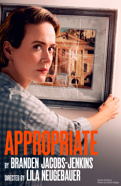Appropriate Playwright Branden Jacobs-Jenkins: 'Everything Anyone Ever Writes Is Political'
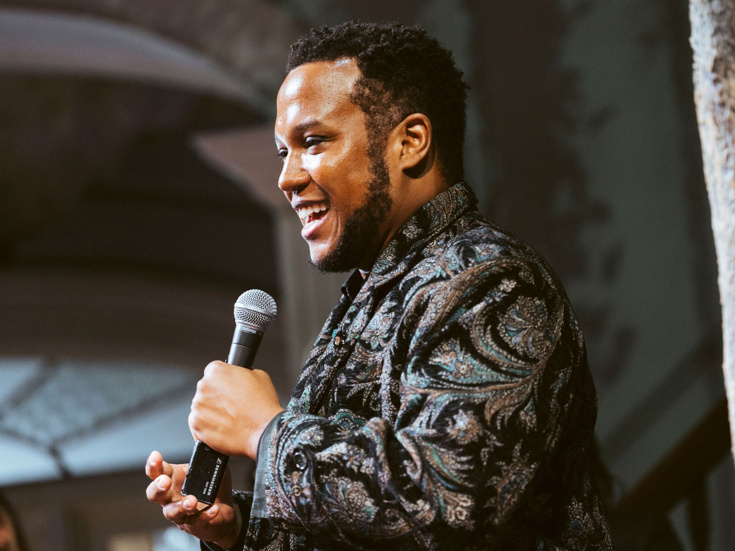
(Photo: Avery Brunkus)
The MacArthur Fellow, Pulitzer finalist, teacher and playwright Branden Jacobs-Jenkins creates work that uproariously entertains even as it shocks and discomfits. Appropriate, his Broadway debut, centers on a trio of siblings who reunite in their old family home—a former plantation in Arkansas—and make an awful discovery. Directed by Lila Neugebauer, and with a starry cast that includes Sarah Paulson, Corey Stoll, Michael Esper and Elle Fanning, it's a theatrical thrill ride that leaves audiences reeling.
Just before the play's official opening at Second Stage's Hayes Theater, Broadway.com spoke with Jacobs-Jenkins about creating (and critiquing) the quintessential American family drama, being "bummed out" about the discourse, and the excitement of being on Broadway.
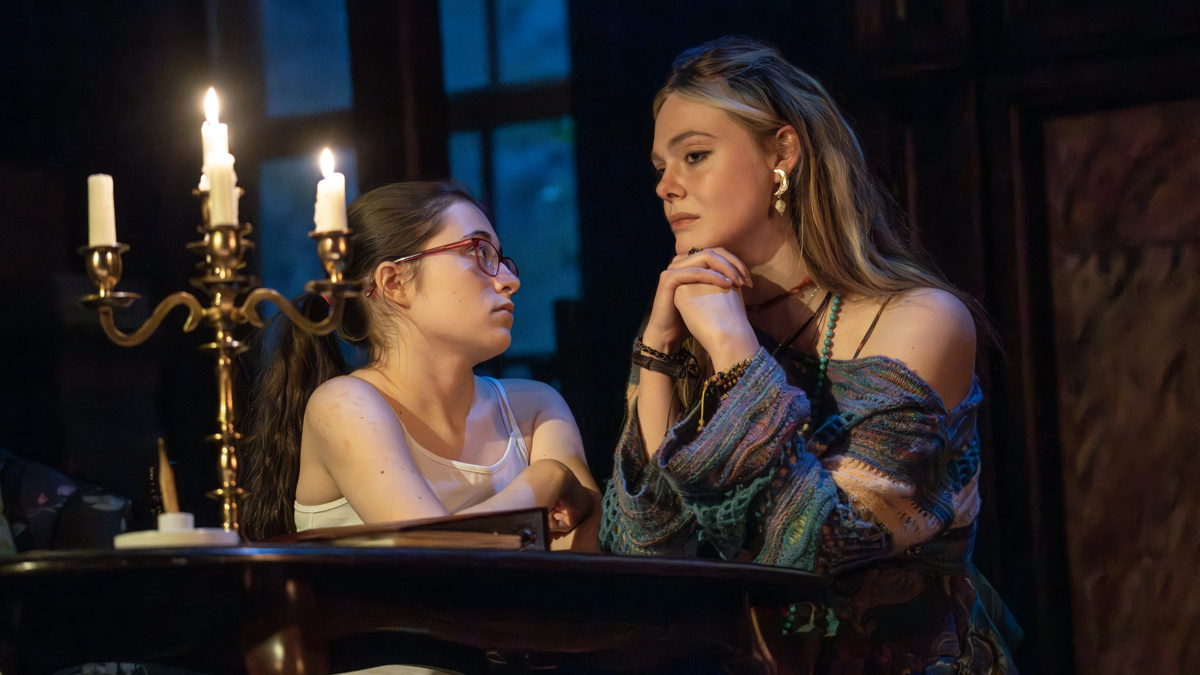
Alyssa Emily Marvin and Elle Fanning in a scene from Appropriate
(Photo: Joan Marcus)
About 10 years ago, you were asked what it would feel like to watch a show of yours on Broadway one day.
Oh my god.
You said it wasn’t even an ambition of yours. So, what are you thinking now, right before opening?
Mostly I don't have anything to wear. [Laughs] To be honest, it's sort of the same. I'm under no delusions that this means I'm suddenly a Broadway playwright. I always bring up Bruce Norris as an example: Clybourne Park won every award you could possibly win and Bruce has not been back on Broadway since. This is really fun, and I'm super honored. But I feel like I'm under no delusions that my life is different. I'm still going to probably do my next play in a little basement downtown. And that's OK because that's what I signed up to do.
"I'm under no delusions that my life is different. I'm still going to probably do my next play in a little basement downtown. "
—Branden Jacobs-Jenkins
There’s a scope to the drama and the ideas in Appropriate, though, that feels like you were conscious of writing for a larger room.
I was writing in a moment when a lot of my colleagues were drawn to hyperrealism, neorealism, the smallest gestures. I'm thinking Annie Baker, Amy Herzog… These folks who were writing so beautifully for black-box spaces and small prosceniums. So few of us were imagining working on a stage or scale this big. I wondered a lot about what's being lost by not training ourselves to think about 50 feet of play space. I was thinking about what drama can actually make it over the footlights, so to speak.
One of the major ideas in the play is that of family as an assortment of competing and mismatched memories. I know that’s true of my experience. How much were you drawing on your own experience of family?
I was very much drawing on sense memories of watching my mother deal with her father's death. She has two siblings herself. It was my first experience of her as a sister and a daughter. I remember eavesdropping on these really vicious fights. This is where I was encountering the story of her being a kid and a young woman and a teenager, and seeing how they each were individuals legislating their relationship to each other in different ways. I was really always profoundly struck by that.
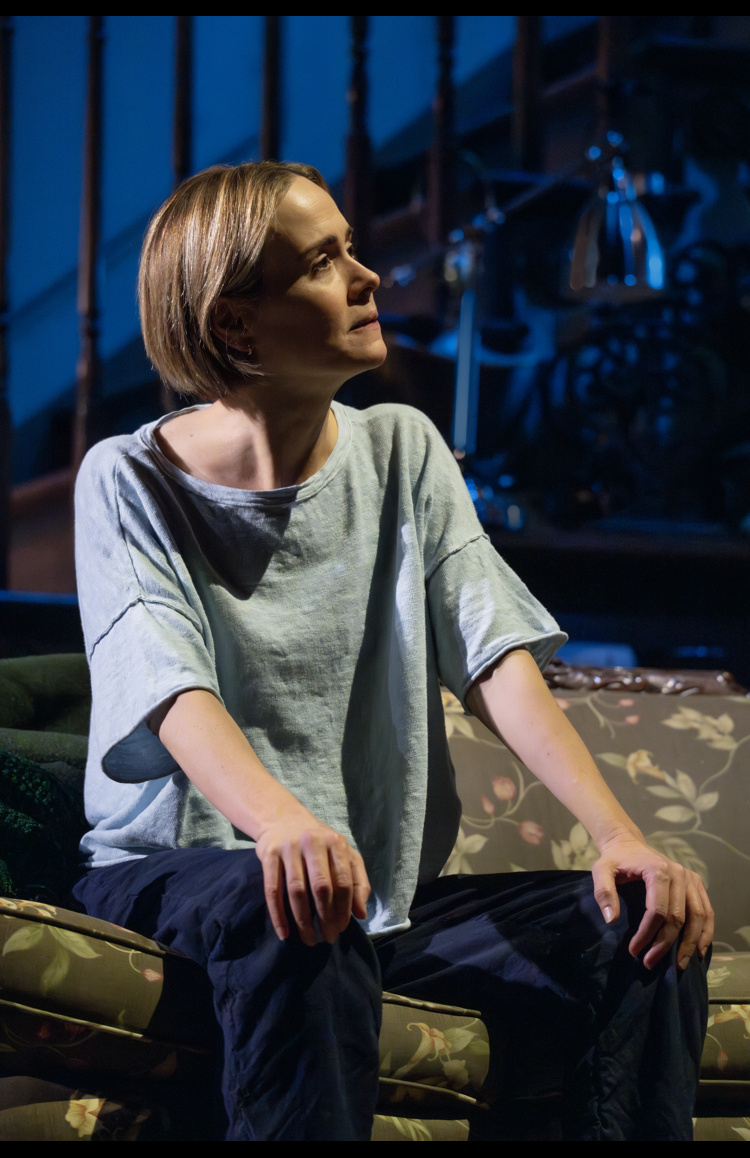
Sarah Paulson in Appropriate (Photo: Joan Marcus)
It's also interesting to think about how families are held together or not. A lot of these American family dramas, they don't quite tell the story, which I think is very common, of how families splinter off and become different versions of themselves.
You were interested in interrogating this idea of family, but also interrogating the idea of the family drama being the holy grail of American theater.
It’s the premium for an American dramatist. That was always everyone's masterpiece: the family drama. I was like, OK, I'm an American playwright, so I guess I sort of need to understand what this thing is. And there's a ton of those plays. I read pretty much all of them, honestly.
The language you’ve used before is “I went and read all those f**king ‘American family’ plays.”
It was a real education, but it was also a long time of reading the same thing over and over again. [Laughs.] I think that’s what you’re hearing there.
You were influenced by the lyricism of the stage directions of Tennessee Williams and Eugene O’Neill, too.
I felt like the idea is to be inspirational. The language you use has to activate the actor’s imagination. I loved the very famous Tennessee Williams stage direction in The Glass Menagerie: “Memory takes a lot of poetic license. It omits some details; others are exaggerated, according to the emotional value of the articles it touches, for memory is seated predominantly in the heart.” The fact that's a stage direction is insane, but incredible.
The opening stage direction of Appropriate is, “Light abandons us and a darkness replaces it.” It could be the beginning of every piece of theater ever—
[Laughs.]
...but it fits beautifully here.
It’s about animating these things we take for granted about the theater. Lights up, lights down. But really, what is that? What is the experience of turning the lights down to an audience and bringing them up on a collective hallucination? What are we doing? What's the light doing? It's maybe a little hoo-hoo for people, but it's what I think about and what I care about.
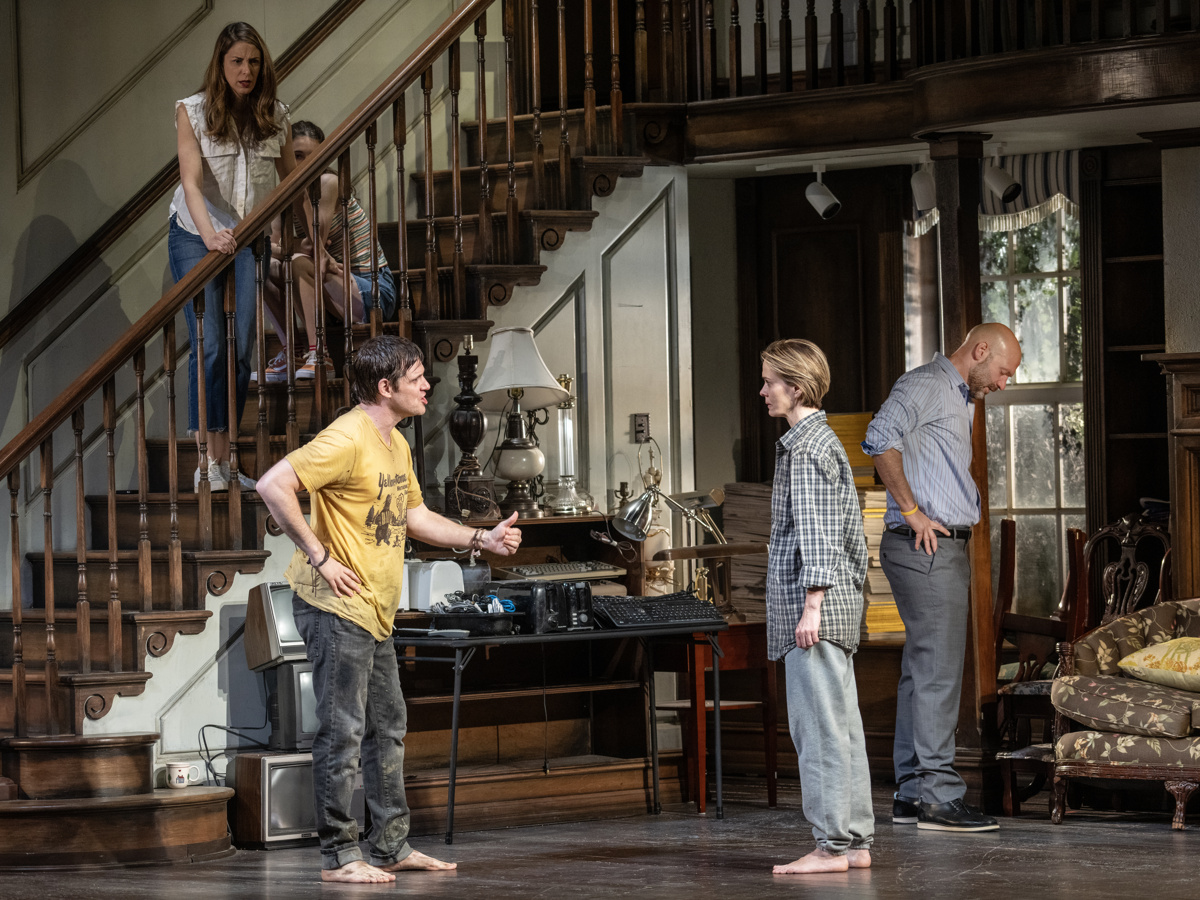
Appropriate's Natalie Gold, Alyssa Emily Marvin, Michael Esper, Sarah Paulson and Corey Stoll (Photo: Joan Marcus)
Did you work out why the family drama is a particularly American form, by the way?
Because of the myths around America as a melting pot. We're this sort of pluralistic democracy—everyone's coming off boats, in all senses, to live here, make lives here. The only social unit you have that contains your history, and therefore your identity, is the family. If you look at the German tradition, there's a lot of plays that are about villages. The U.K. is famous for these plays about manners and estates. They have this idea of history that's baked into communities and in locations. Whereas we are people who literally just have our family and that becomes the canvas upon which all universal struggles are worked out. I find that really interesting, kind of moving, that we just have a different relationship to the family unit.
You're an admirer of Suzan-Lori Parks, who has always said that she never consciously writes about “issues”—they just turn up in her work. Do you relate to that way of thinking?
I am someone who believes that everything anyone ever writes is political because it expresses a point of view on how people should interact with each other and how meaning is described socially. I don't think you can ever escape writing issues. You just can't escape it. You can't escape the questions. You can sort of draw attention to them in your work, or you can pretend they don't exist, but at the end of the day, you're a person on the planet talking to other people. You know what I mean?
"The only social unit you have that contains your history, and therefore your identity, is the family. " —Branden Jacobs-Jenkins
So this recent New York Times story—
Oh, I have not read it. My friends have told me that I get some digs in.
Well, you mention that the Times is constantly asking for you to be involved in stories about Black playwrights. And the journalist, who admires your work, takes issue with a play about Black suffering in which the Blackness is invisible. Just generally, what do you think of the discourse around you and your work?
I feel like, as an artist of color, I stepped out of my apprenticeship into this world that had the most crazy, outdated politics. I was having to navigate things my direct colleagues did not have to deal with. You know what I mean? The people I came up with are all great, but something happened where, the minute we started getting produced, we were put into different camps. Even though we had the same teachers, we were studying the same things, we were idolizing the same artists, there was this kind of odd segregation happening on the level of critical discourse that just bummed me out. It’s our collaboration [between theatermakers, critics and commentators] that keeps audiences coming to the theater. So we have to figure out: What do we think we're doing here? Because pretty soon, none of us are going to have anything to do if we don't get a grip.
I was in the audience last night and, whatever the nature of the discourse, the audience was electrified.
It was a pretty good show last night! What's wild is, Broadway audiences are actually the most radical audiences. It's people who want to see a play on Broadway, but it's also people who just want to see a star. It's people who are staying at a hotel four blocks away and a concierge told them to go see this. You have people who show up who literally have no idea what the play is about—or who I am or what I look like. Getting to watch them go on the ride is very cool to me.
